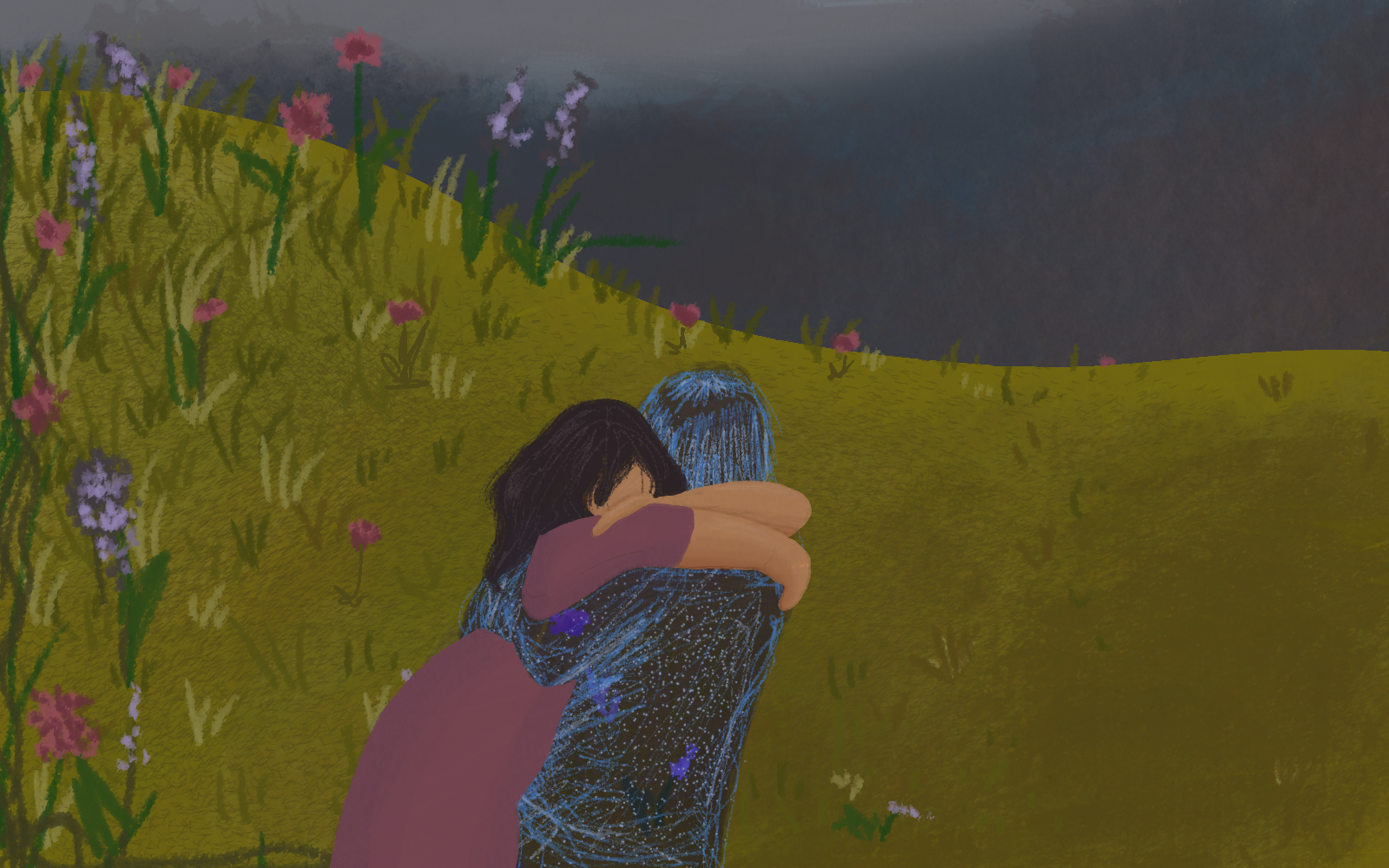Why grief is nothing like I thought it would be.
My cousin once compared living with grief to a butter croissant. The grief is butter being folded into the pastry; at first you don’t know what to do with it, but gradually it becomes a part of you in a way that makes a little more sense.
I’ve been thinking about grief a lot lately. This spring will mark 2 years since I lost my sister, my closest friend. She was 22 years old when she lost her battle with depression.
Before I experienced loss, I had a preconceived notion of what it would be like. In the days and weeks that followed her death, I kept waiting for the “real” grief to hit, that wave of despair that they show you in movies. But instead of an acute pain, it was more of a constant stomach ache. I started wondering what was wrong with me—why wasn’t I able to feel as deeply as I thought I should?
As the months went on, I realized that maybe I would never feel the way I expected I should feel. I began thinking about how grief can look different for everyone, and how your own personal experience is not invalid just because it isn’t the exact same as someone else’s. Some people pull away from work and friends following a loss; other people throw themselves back into their usual routine in order to distract themselves. One isn’t more legitimate than the other.
For me, grief looks like avoidance. I go months without saying my sister’s name—not because I don’t want to talk about her, but because I’m not sure how. When I tell stories that involve her (as so many of my stories do), it’s become a reflex to omit her. When someone asks me how many siblings I have, I almost always lie.
Just a few days after I got the news, I went back to work and pretended that nothing had happened. Heavy emotions never suited the image I projected of myself, so I just didn’t express them. There’s only so much I can run from this, though, and I have had to learn to be more comfortable with discomfort.
Discomfort and grief are intrinsically tied. This is apparent in the fact that following a loss, nobody can say the right thing. Sometimes I felt cloyed by people’s sympathies; conversely, I made hit lists of people who didn’t reach out. People don’t know what to say—some people have reassured me with, “Don’t worry, I won’t ask,” when really, I desperately wish they would.
The best response was the most honest one: a close friend said to me “I don’t know what to say—what do you need from me?” Hearing that was like a pressure being lifted. People often claw at the right answer, and don’t realize that the answer might change from person to person, and day by day. Or that there often is no right answer, and it’s okay to acknowledge that.
On the note of acknowledgement, here’s something else I’ve learned: It’s okay for it to not be okay. Talking with my cousin that night of the croissant analogy, I was making verbal lists of everything I’d learned from grief when she stopped me.“You don’t always have to do that, you know,” she said. She said that although it’s positive to find wisdom in bad experiences, we’re also allowed to admit that it just sucks.
I find myself guilty of that a lot—of spinning the tale in a way that will make the listener more comfortable. I have started to work on this a little bit. I mention my sister a little more these days, and I have been trying to talk more about loss.
I think in the beginning, I was afraid of grief. I remember saying to a friend, “I don’t want to feel like this for my whole life.” The idea of that permanence—the permanence of her absence, the indefinite nature of missing her—seemed so ominous. I heard so many people say that grief never goes away, and that terrified me.
It turns out they were right, but not in the way I thought. I still think about her every day, but it isn’t all-consuming. My life has continued; the new experiences and other people in my life don’t fill the hole she left, but they build around it. Grief never does go away, but as you sit with it, you begin to understand it a little bit more. Like butter in a pastry, it becomes a part of you in a way that feels more manageable.
In the same way, my sister Hannah will always be a huge part of me. Every time I write an article, I think about the ones she would write for McGill’s Bull & Bear, her commitment to serious issues juxtaposed with a wry sense of humour and a fantastically terrible taste in pop culture. So many aspects of my personality, my values, and the things I love are the result of growing up beside her. In many ways, I am her. Similarly, grief will always be a part of me—this is something I have learned to live with.
